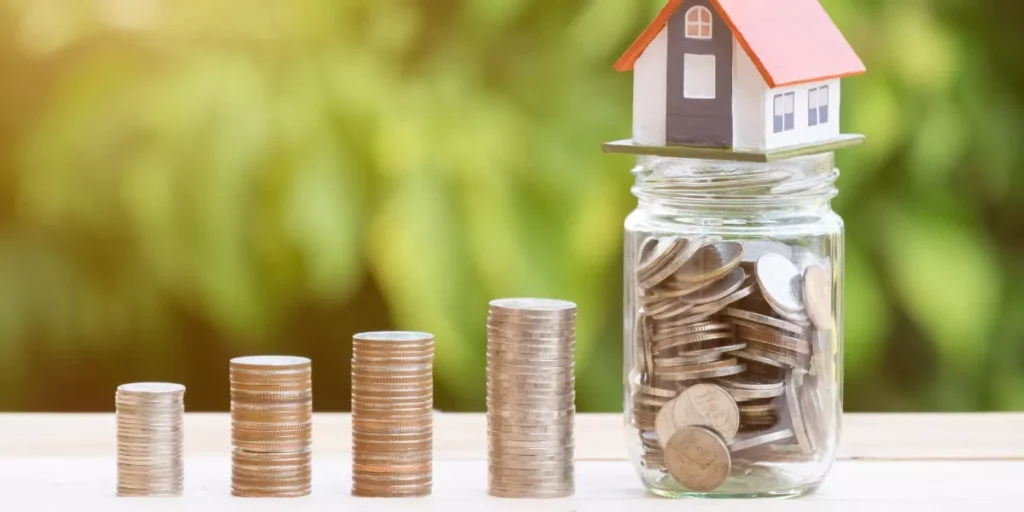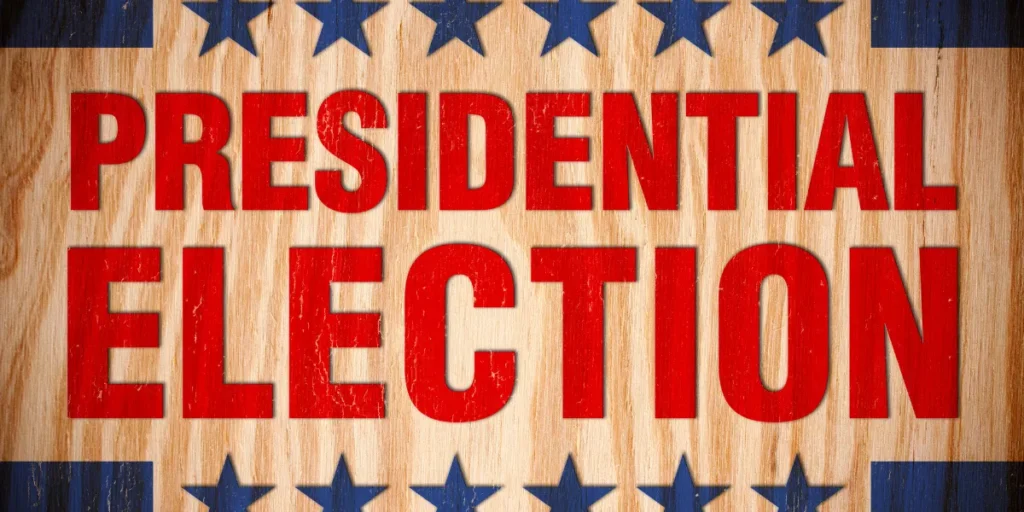
We all prepare for a new national election cycle every four years, complete with debates, advertisements, and a great deal of speculation. However, there is another crucial query for both buyers and sellers of real estate: Do home prices go down during election year?
It’s a reasonable worry. Political unpredictability can make markets uneasy, and the timing is critical if you are making one of the biggest financial decisions of your life. However, do the presidential candidates really affect the housing market? Or is it more stable than we believe?
Let’s examine the past data, determine what factors actually affect housing prices, and determine if it makes sense to purchase or sell a home during an election year.
What History Tells Us About The Housing Market In Presidential Election

Presidential election years have historically had a discernible but transient impact on the housing market, primarily on sales volume rather than home values. Generally speaking, people tend to “wait and see” to the months leading to the election before making significant decisions, which causes activity to somewhat slow down. However, it’s crucial to distinguish declining prices from fewer transactions.
For instance, the months preceding a presidential election typically see a 15% slowdown in home sales, according to a study conducted by Meyer’s Research and NAR. Buyers and sellers become anxious about the general uncertainty of policy direction rather than specifically about any one candidate.
History, however, indicates that this slowdown is usually temporary. Home sales increased once the results are in. In fact, home prices have increased in a number of previous election years.
- 2012: The housing market was rebounding from the 2008 housing market crash at the time of Obama’s reelection. The cost of homes rose steadily.
- 2016: Home values increased by about 5.4% in spite of the extreme political polarization.
- 2020: Prices skyrocketed in many places during a year dominated by COVID-19, mostly because of record-low mortgage rates and strong demand rather than the election.
In summary, elections do not always result in a decline in home prices compared to in non-election years, even though they may cause people to temporarily slow down. That leads us to re-ask: do home prices go down during election year, or is it more about perception than reality?
What Drives Home Prices
We must comprehend the factors that actually affect home prices in order to provide a meaningful response to what impact the housing market. It’s not just politics, spoiler alert.
1. Interest Rates
Possibly the most important factor. Mortgages become more affordable with lower interest rates, which boosts demand from buyers and drives up prices. Higher rates have the opposite effect. Usually, the Federal Reserve has more influence over this lever than political candidates do.
2. Supply and Demand
Prices increase when demand exceeds housing supply. Prices may decrease when demand declines and supply increases. In many major cities across the United States, there has been a shortage of housing among the July to November timeline, which keeps prices stable even during uncertain times.
3. Employment and Wages
People feel more comfortable purchasing homes if they are working and making more money. Strong housing demand is supported by high employment and wage growth.
4. Consumer Confidence
This is where elections are important. Customers may put off making purchases if they are uneasy due to political unpredictability or economic uncertainty. Once more, though, it’s typically transient and more psychological than fundamental.
5. Local Market Conditions
Real estate is very local, but national trends are important. Austin’s situation might be quite different from Detroit’s or Phoenix’s.
Does Home Value Go Down In Election Year?
Let’s get right to the point: not typically.
Home values have not always decreased during election years, even though sales volume may momentarily slow down. The assertion that prices decline every four years is just not supported by the data.
A quick stall in gratitude is what you might witness as an election affect. Until the outcome is known, sellers might wait to list, and buyers might exercise caution. However, unless there are additional economic stressors, such as a recession or rising interest rates, real price reductions are uncommon.
Because there is less competition leading up to the election, many buyers discover that these times present better buying opportunities. Although it may result in fewer bidding wars and greater negotiating power, it does not imply that prices will drop.
In light of this, when people inquire, “do home prices go down during election year?” The more accurate response is that, although they may not rise as quickly, they hardly ever fall unless there is a significant economic event.
Should You Buy Or Sell A House In An Election Year
Campaign slogans should not influence your decision to buy or sell during an election year; rather, your unique situation should.
Reasons to Consider Purchasing:
- Less Competition: Better offers or fewer bidding wars may result from fewer active buyers if you are looking to buy.
- Motivated Sellers: People who list when things are unclear might be more amenable to haggling.
- Stable Or Falling Interest Rates: If rates are low on home loans, that is a good time to lock in financing if you want to buy a home.
Reasons to Think About Selling:
- Close Stock: Even in an election year, you can command top dollar if supply is limited.
- Equity Position: Now might be the ideal time to cash out and move up (or downsize) if your house prices rose a lot.
- You Are Moving Away Anyway: Events in life don’t wait for politics. There’s no point in waiting if you have to move.
Working with a real estate professional, or realtor who is familiar with your local market and can assist you in sifting through the impact of presidential elections is crucial, whether you are buying or selling.
Conclusion
So, do home prices go down during election year? Not usually.
Indeed, as people struggle with uncertainty, the housing market might see a brief slowdown in activity. However, costs? They usually stay steady or even rise especially if strengthened by sound fundamentals such as low inventory, stable employment, and attractive rates of interest.
Do not let election-related stress stop you from making a wise decision in your real estate choice. The best time to buy or sell has nothing to do with the political calendar but the needs, financial status, and the local market conditions. Let us help you navigate the market with confidence, no matter what way political headlines affect real estate. With years of experience and a deep understanding of local trends, we offer calm, clear, and strategic guidance to help you make the right move at the right time.
Reach out to us today, because smart real estate decisions aren’t red or blue. They’re just smart.
FAQs
Q. What Effect Do Elections Have On Mortgage Rates?
A: Even if elections become disruptive to the financial markets for some time, the Federal Reserve’s decisions, and broader economic trends have greater effects on mortgage rates than the result of, say, the 2024 presidential elections impact.
Q. Are Election Years Riskier For The Housing Market?
A: Not necessarily, if you want to buy or sell a home. There is no proof that the real estate market becomes riskier leading up to election day, even though buyer and seller behavior may momentarily change. Local economic factors play a greater role than the upcoming election.
Q. Is It More Difficult To Sell A Home During An Election Year?
A: Properly priced and marketed homes from the department of housing and urban development sell, especially in hot markets, but if buyers are withholding to see what the election does, then it could take a little longer.
Q. Should First-Time Homebuyers Hold Off Until After The Election?
A: Not always. You don’t have to wait if you’ve found a good opportunity and your finances are in order before reaching out to a real estate agent or realtor. As a buyer, you may benefit from hesitancy during an election year in home sales, according to market trends.




